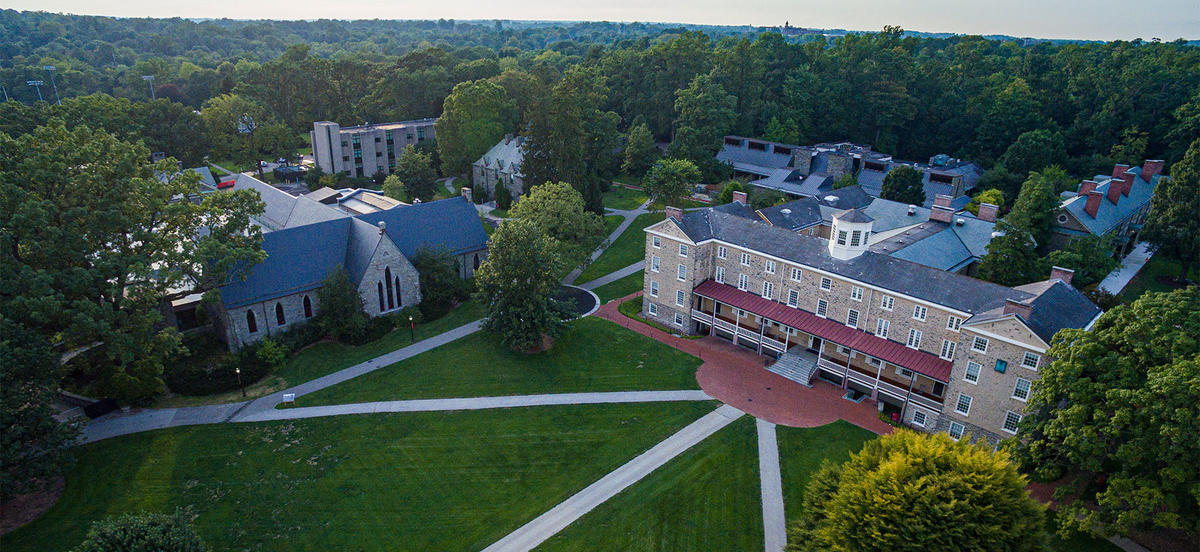Haverford College Launches "Campus Climate" Survey

Photo by Holden Blanco '17.
Details
From March 22 through April 22, the College is gathering anonymous responses from students, faculty, and staff to assess the belonging and inclusion of our community members.
Today, Haverford College launches Your Campus, Your Voice: Haverford's Climate Survey, a survey of college community members about their attitudes, behaviors, and experiences of life at Haverford. This survey, which is key to assessing Haverford’s diversity, equity, and inclusion efforts, follows previous similar surveys, including one of students, staff, and faculty in 2015–2016 and one of just students in 2018–2019. All current students, staff, and faculty are invited to participate in this new survey through April 22.
"This project will help us build a more equitable and inclusive Haverford, and I hope that every student, faculty and staff member will participate," said President Wendy Raymond. "The resultant learning will drive data-informed action throughout the campus. The more widespread the participation, the more confidence we all will have in understanding our campus climate, and the more confidence we will have in designing and carrying out our responses to the survey’s findings."
The project is being headed-up by Interim Chief Diversity Officer Norm Jones. “This kind of survey brings into focus the various ways faculty, students, and staff experience the College as it relates to inclusion and belonging,” said Jones. “Many questions provide opportunities for respondents to elaborate on their opinions.”
The questions on Your Campus, Your Voice: Haverford's Climate Survey were designed by a working group committee of students, staff, and faculty in collaboration with outside consultants at Rankin & Associates, who have administered campus climate assessments at more than 220 institutions around the country. The goal of the questions is to solicit information about both positive and challenging aspects of the climate at Haverford and provide an opportunity for respondents to describe personal experiences, observations, and suggestions for change.
To that end, the survey is entirely anonymous and confidential. Submissions are not identifiable as coming from any individual, and the results will only be reported in group form. Invitations have been sent to all students, staff, and faculty via email. Clicking the link takes you to the survey, which is hosted on a non-College platform for maximum anonymity and, therefore, must be completed in one sitting.
“We hope that students, faculty, and staff will take the survey, understanding, foremost, that all responses are anonymous,” said Jones. “That's one of the reasons we chose to outsource data collection and analysis. Beyond that, the College needs to know how we are performing when it comes to the lived experiences of community members. It's great to have programs, initiatives, plans, and processes, but none of those efforts provide a space for individuals to offer feedback that helps us improve our community based on what people tell us about their lived experience.”
“This is a great opportunity for students' voices to be heard loudly and clearly,” said Dean of the College John McKnight. “We want to make sure that there are strong enough response rates to allow the College to be able to feel confident in its understanding of the areas of greatest need as it pertains to creating a more equitable and inclusive community.”
The results of the survey will be used to develop data-driven action items over the coming weeks and months.To incentivize participation, $50 Campus Cash prizes will be raffled off to 40 lucky survey-takers. Additional details about the survey and the working group members who helped create it can be found on the project’s website.
“We hope to identify areas of greatest urgency and concern so that we can prioritize them in working toward policies and practices that will resolve those areas,” said McKnight. “I'm equally interested in learning about spots of excellence around campus that we can look to as models of equitable and inclusive practice.”
“We are laying the groundwork for connective work to occur well before the results are in,” said Jones. “We also want to build spaces for discussions about the results. That kind of evaluative work will carry the community into the next climate survey.”



